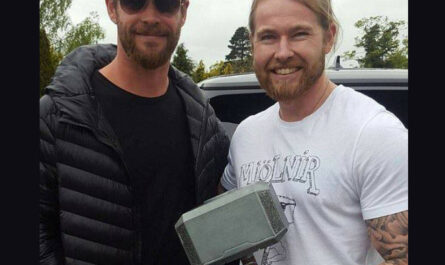Hugh Jackman, the versatile actor renowned for his captivating performances across a wide spectrum of genres, has consistently showcased his ability to tackle complex characters and thought-provoking social themes throughout his illustrious career. From his iconic portrayal of Wolverine in the X-Men series to his mesmerizing performance as Jean Valjean in Les Misérables, Jackman has skillfully infused his roles with profound social commentary, prompting audiences to delve deeper into the issues of discrimination, redemption, inclusion, and social justice. In this comprehensive analysis, we explore the subtle yet impactful social messages embedded within some of Hugh Jackman’s most iconic roles, shedding light on the enduring relevance of his work in sparking dialogue and inspiring change.
- X-Men Series (Wolverine): Hugh Jackman’s portrayal of Wolverine, the brooding and conflicted mutant with adamantium claws, serves as a poignant exploration of themes of discrimination and acceptance. As a mutant, Wolverine is an outsider in society, feared and misunderstood because of his extraordinary abilities. His journey throughout the X-Men series is marked by a constant struggle for acceptance and belonging, mirroring the experiences of marginalized groups who face prejudice and discrimination based on factors beyond their control.
Through Wolverine’s character arc, Hugh Jackman sheds light on the complexities of identity and the human tendency to fear the unknown, challenging audiences to confront their own biases and preconceptions. By embodying the struggles of a marginalized individual, Jackman delivers a powerful message of empathy and compassion, advocating for greater understanding and acceptance of diversity in all its forms.
- Les Misérables (Jean Valjean): In Les Misérables, Hugh Jackman delivers a tour-de-force performance as Jean Valjean, a former convict seeking redemption and a second chance at life. Valjean’s journey from embittered ex-convict to selfless benefactor highlights themes of redemption, social justice, and the enduring power of forgiveness.
Through Valjean’s character, Jackman explores the inherent humanity within every individual, regardless of their past mistakes or societal status. Valjean’s relentless pursuit of redemption serves as a powerful reminder of the transformative potential of compassion and empathy, inspiring audiences to reevaluate their own perceptions of forgiveness and second chances.
- The Greatest Showman (P.T. Barnum): In The Greatest Showman, Hugh Jackman takes on the role of P.T. Barnum, the visionary showman who defied societal norms and celebrated individuality through his creation of a spectacular circus spectacle. Through Barnum’s character, Jackman explores themes of inclusion, diversity, and the power of self-belief in overcoming adversity.
Barnum’s embrace of “outsiders” and misfits challenges societal expectations and norms, offering a compelling message of acceptance and empowerment. Jackman’s portrayal of Barnum serves as a rallying cry for embracing diversity and celebrating the unique talents and contributions of every individual, regardless of their background or circumstances.
- Australia (Drover): Set against the backdrop of World War II and the struggle for Aboriginal land rights, Australia sees Hugh Jackman embodying the character of Drover, a rugged cattle drover who becomes embroiled in the fight for justice and equality. Through Drover’s experiences, Jackman explores themes of racism, colonialism, and the enduring resilience of marginalized communities.
Drover’s journey serves as a poignant reminder of the ongoing struggles faced by Indigenous peoples around the world, shedding light on the injustices of the past and the ongoing fight for recognition and equality. Jackman’s portrayal of Drover offers a nuanced exploration of the complexities of race and identity, challenging audiences to confront the legacies of colonialism and discrimination that continue to shape our world today.
Conclusion: Hugh Jackman’s iconic roles are not merely performances; they are powerful vehicles for social commentary and reflection. Through characters like Wolverine, Jean Valjean, P.T. Barnum, and Drover, Jackman explores a diverse array of social themes, prompting audiences to confront issues of discrimination, redemption, inclusion, and social justice. His ability to embody complex characters and historical events with depth and authenticity speaks to his talent as an actor and his commitment to using his platform to spark dialogue and inspire change.
As we celebrate Hugh Jackman’s remarkable contributions to cinema, let us recognize the enduring relevance of his work in shining a light on the pressing social issues of our time. Through his transformative performances, Jackman continues to challenge and inspire audiences, inviting us to look beyond the surface and confront the complexities of the human experience with empathy, compassion, and understanding.



